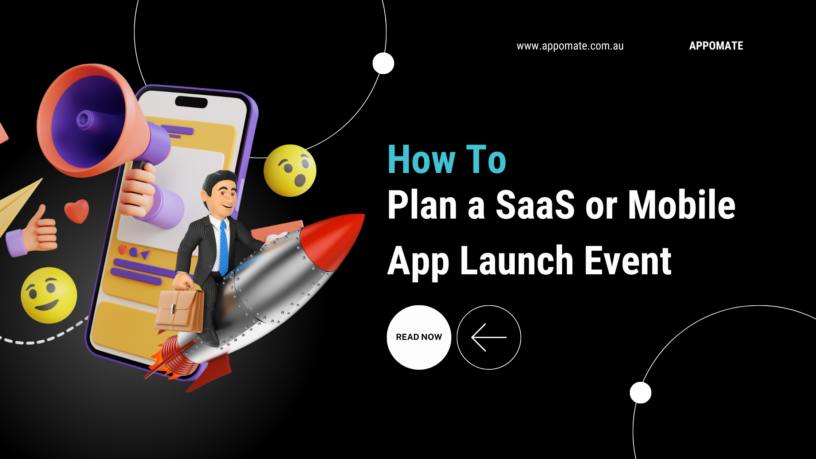New app launches are milestones worth celebrating. Whether you’ve built a SaaS product or a mobile app, a well-executed launch event can do more than mark your go-live date—it can generate buzz, spark early user engagement, and fast-track growth.
In this blog, we’ll explain how to plan a high-impact launch event that will put your app on the map, build trust with potential users, and set the stage for long-term success.
Why Host a Launch Event for Your App?
Your app launch is the start of a new chapter. A great launch event helps you:
- Celebrate the milestone with your team and early supporters
- Show off the app’s value to potential customers
- Generate buzz across social media and the press
- Capture early leads and conversions
- Position your brand as bold, human, and innovative
Launch Event Formats That Work
Depending on your goals, audience, and budget, here are some launch event formats to consider:
-
Virtual Product Launch Webinar
Best for: Wide reach, low cost
Platform ideas: Zoom, Microsoft Teams, Hopin
Structure:
- Founder welcome + app backstory
- Live product demo
- Early user/client testimonials
- Interactive Q&A
- Call-to-action (signup, book demo, download app)
Tips:
Keep it under 60 minutes, use visuals, and encourage live interaction.
-
In-Person Launch Party
Best for: Building deeper local relationships
Venue ideas: Co-working spaces, tech hubs, cafes, community venues
Agenda:
- Networking & refreshments
- Live demo stations
- Panel or fireside chat with relevant voices
- Media photo ops
- Branded giveaways or trial codes
-
Demo & Networking Breakfast
Best for: Smaller, high-intent groups (investors, early adopters, partners)
Why it works:
- Low time investment for guests
- High-value connections
- Better conversion from warm leads
-
Panel + Product Showcase
Best for: Thought leadership + product promo combo
Format:
- Panel on an industry topic your app addresses
- Short product demo
- Casual networking afterwards
How to Prepare for Your Launch Event
Step 1: Define the Objective
Is it to generate leads? Build brand awareness? Attract investors? Launch goals will shape your format and messaging.
Step 2: Craft a Compelling Narrative
Your story matters. Share why you built this app, the problem it solves, and the change you want to create.
Step 3: Create Launch Assets
You’ll need:
- A branded landing page
- Teaser video (30–60 secs)
- Social media banners
- Email invites and reminders
- Event slides
- Blog post or press release
Step 4: Promote the Event
- Launch an email campaign
- Share on LinkedIn and other channels
- Run paid ads (optional)
- Personally invite influencers or key partners
- Highlight the event on your app’s website
Launch Day: Best Practices
- Tell a Great Product Story
Focus on real-world use cases. Show how your app makes life better, faster, easier.
- Capture Everything
Record the event. Capture quotes, reactions, and visuals to repurpose later.
- Encourage Participation
Use polls, giveaways, or open Q&As to drive engagement.
- Create FOMO
Post behind-the-scenes moments. Go live on social. Use hashtags and mention attendees.
After the Launch: Keep the Momentum Going
- Follow Up Fast
Send a thank-you email, share the event recording, and offer a special bonus (e.g., free trial).
- Repurpose the Content
- Turn recordings into short clips for social
- Share testimonials and reviews
- Publish a post-event recap blog
- Nurture New Leads
Start a follow-up campaign. Offer one-on-one demos or onboarding sessions.
Final Words
And remember, you, as a founder, worked so hard for months (or sometimes years) to get here. So, a launch event is not just about creating a buzz but, more importantly, taking a moment to pause and genuinely acknowledge yourself and anyone who helped you to get this far. Many projects don’t even get to this stage. So, let’s make sure to celebrate all your hard work, have some fun and enjoy the journey as you go
Do you want to bring your app idea to life? Let’s get started!
